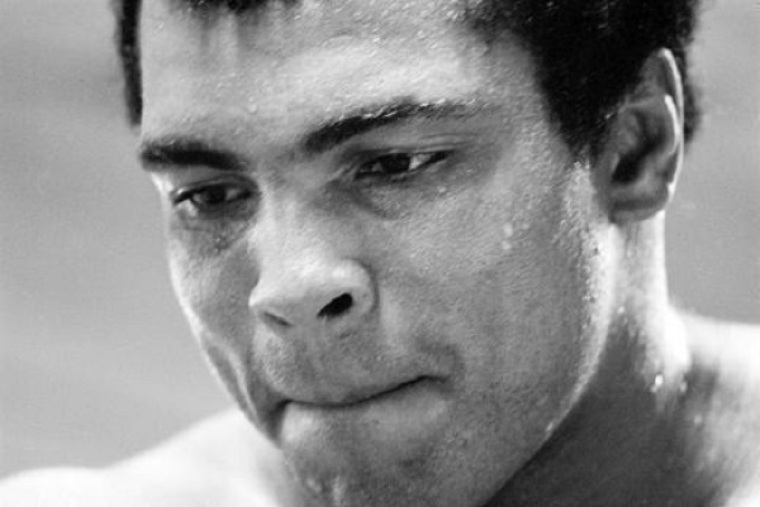Why did Muhammad Ali convert to Islam?
As the world mourns for the recent passing of boxing legend Muhammad Ali, many are wondering why "The Greatest" converted to Islam.
It all started in in 1961 when he attended a meeting of the Nation of Islam (NOI), an African American Islamic group that advocates to improve the life of African-Americans in the U.S. At the time, Ali was already starting to make a name for himself in the boxing arena, where he was known as "Cassius Clay," according to The Independent.

He continued to attend NOI meetings. As he got deeper into the movement, he was mentored by Malcolm X, a prominent figure in the NOI. His close ties with his spiritual mentor and with Elijah Muhammad, NOI leader, worried some conservatives. However, he did not cease to inspire the public.
Ali briefly called himself "Cassius X," in following his spiritual mentor Malcolm X. However, he dropped that name and adopted his new name "Muhammad Ali," which means "beloved of God."
"Cassius Clay is a slave name. I didn't choose it and I don't want it. I am Muhammad Ali, a free name – it means beloved of God, and I insist people use it when people speak to me," The Independent quoted Ali as saying. Only a few journalists apparently accepted his name change at first.
Ali's speeches became a source of inspiration for many.
"In the civil rights era, he stood against the discrimination we've all faced in the US," Dawud Walid from the Council on American-Islamic Relations told Al Jazeera. "He crystallised that mindset of resistance and a feeling among many Muslims not to submit to stereotypes; that being Muslim is just as American as being Christian or Jewish."
In 1975, Ali fully embraced and converted to Sunni Muslim. His conversion to Islam was primarily a political more than a religious move. He seized opportunities to use his platform to advance the cause of African-Americans.
Ali was also famous for his opposition to the Vietnam War. He would not serve in the army, saying it was against his religious beliefs.
"I ain't got no quarrel with them Vietcong," he said, costing him his titles and his boxing license.
Veterans for Peace director Michael McPherson described him as "ahead of the curve" in opposing the Vietnam War.
"He was an African-American Muslim who criticised US foreign policy. It's hard to do that today; but back then, black people had to prove their allegiance, patriotism and belief in America," McPherson said, according to Al Jazeera. "I wish we had more people who speak out when something is wrong."
 Christians don't have to affirm transgenderism, but they can’t express that view at work: tribunal
Christians don't have to affirm transgenderism, but they can’t express that view at work: tribunal Archaeology discovery: Medieval Christian prayer beads found on Holy Island
Archaeology discovery: Medieval Christian prayer beads found on Holy Island Presbyterian Church in America votes to leave National Association of Evangelicals
Presbyterian Church in America votes to leave National Association of Evangelicals Over 50 killed in 'vile and satanic' attack at Nigerian church on Pentecost Sunday
Over 50 killed in 'vile and satanic' attack at Nigerian church on Pentecost Sunday Ukrainian Orthodox Church severs ties with Moscow over Patriarch Kirill's support for Putin's war
Ukrainian Orthodox Church severs ties with Moscow over Patriarch Kirill's support for Putin's war Islamic State kills 20 Nigerian Christians as revenge for US airstrike
Islamic State kills 20 Nigerian Christians as revenge for US airstrike Man who served 33 years in prison for murder leads inmates to Christ
Man who served 33 years in prison for murder leads inmates to Christ


 Nigerian student beaten to death, body burned over ‘blasphemous’ WhatsApp message
Nigerian student beaten to death, body burned over ‘blasphemous’ WhatsApp message 'A new low': World reacts after Hong Kong arrests 90-year-old Cardinal Joseph Zen
'A new low': World reacts after Hong Kong arrests 90-year-old Cardinal Joseph Zen Iran sentences Christian man to 10 years in prison for hosting house church worship gathering
Iran sentences Christian man to 10 years in prison for hosting house church worship gathering French Guyana: Pastor shot dead, church set on fire after meeting delegation of Evangelicals
French Guyana: Pastor shot dead, church set on fire after meeting delegation of Evangelicals ‘Talking Jesus’ report finds only 6% of UK adults identify as practicing Christians
‘Talking Jesus’ report finds only 6% of UK adults identify as practicing Christians Mission Eurasia ministry center blown up in Ukraine, hundreds of Bibles destroyed: 'God will provide'
Mission Eurasia ministry center blown up in Ukraine, hundreds of Bibles destroyed: 'God will provide' Church holds service for first time after ISIS desecrated it 8 years ago
Church holds service for first time after ISIS desecrated it 8 years ago Burger King apologizes for 'offensive campaign' using Jesus' words at the Last Supper
Burger King apologizes for 'offensive campaign' using Jesus' words at the Last Supper Uganda: Muslims abduct teacher, burn him inside mosque for praying in Christ’s name
Uganda: Muslims abduct teacher, burn him inside mosque for praying in Christ’s name